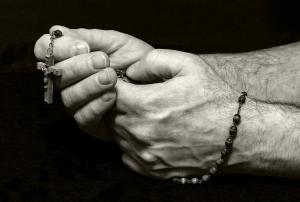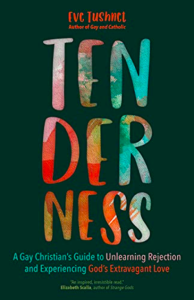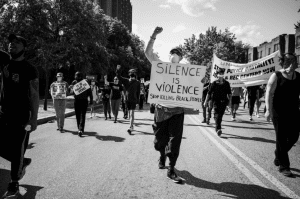Peter, Gate My Sheep

Last week, the Diocese of Marquette brought out a new policy on the pastoral care of gay and trans people. It made something of a splash on Twitter, partly because it’s extraordinarily restrictive, especially for the latter. Some dioceses don’t allow trans people to serve in Catholic schools or ministries, but this is the first time I’ve heard of a bishop directing his priests to refuse baptism to someone for being trans:
A person who publicly identifies as a different gender than his or her biological sex or has attempted “gender transitioning” may not be Baptized, Confirmed, or received into full communion in the Church, unless the person has repented. Repentance does not require reversing the physical changes to the body that the person has undergone. The experience of incongruence in one’s sexual identity is not sinful if it does not arise from the person’s free will … However, deliberate, freely chosen and manifest behaviors to redefine one’s sex do constitute … an obstacle.
Considering that baptism is, on the Catholic view, normally necessary to go to heaven,1 this kind of policy is a big deal! But to talk about it, we need to talk about the Catholic theology of gender, which is …
The Catholic Theology of Gender
… not completely clear, to be honest?
This isn’t to say the Church has said nothing about gender throughout her history. That’s obviously false—her teachings about sex and marriage presuppose the existence of male and female. As, if you think about it for a moment, does the idea of being transgender: if the sex of the body weren’t important to someone, it couldn’t make them uncomfortable. But I shouldn’t get sidetracked. I have, unsystematically, been trying to find an official Catholic stance on the metaphysics of gender for a few years now, and come up empty-handed. No council or encyclical has (to my knowledge) defined Church teaching on the subject; the Catechism maybe alludes to it, in just one paragraph; I’ve read Theology of the Body, and St. John Paul II never even explicitly discusses homosexuality, let alone trans identities.

I have found plenty of statements like the Marquette document, past and present. However, I’m not clear on the exact authority documents like this possess. Something like, say, the Pope directing a revision to the Catechism is obviously highly authoritative; one bishop stating an opinion, or even publishing a set of pastoral guidelines, is in a much greyer area.2 If what we’re talking about here is a theological opinion—something based on dogma, but not dogma—then withholding the sacraments, particularly baptism, is a really extreme measure against something that might not even be a sin in the first place.
The Unicorn in the Room
I wouldn’t feel right about proceeding with this series without making a few clear statements about myself first, though.
First of all, I’m not an ideal spokesman for the trans community. I do identify as non-binary, so I’m sort of “technically trans,” if you like? But:
- My gender dysphoria is (a) pretty mild and (b) often fluctuates, so I don’t have any plans to transition medically—or even socially, beyond trying out he/they pronouns for a while. All that makes my experience pretty different from that of most trans people.
- A lot of trans people would, to put it mildly, disagree with my acceptance of Catholic teaching about sexual morality, and be suspicious of my ideas about gender accordingly.
- If the Church does define her theology of gender, I’m committed to accepting that, whatever it is. That kinda puts me on the hook to accept things I might dislike, but which are far costlier for most other trans people than they are for me.
- I’m only one guy. I haven’t even read a ton of stuff by trans people or about gender theory. (Basically I’ve watched a lot of ContraPoints videos.) I think I do a reasonably good job of distinguishing between stuff I’m well-informed about and stuff where I’m unsure; but even with those caveats, I should not be your only source of information about this stuff!

Second, what the shit, I’m non-binary!? What does that even mean?
Now, not everyone uses the term in exactly the same way. For me, it means that while I don’t want to be a woman, there are certain things about my body I do wish were different. And I’m not going to go into full details, because it’s private. No one owes strangers a description of any of their funky bits, actual or ideal.3 I’m also not ready to say what I myself think about my identity, philosophically. I’ve heard a few different explanations of what gender metaphysically is, and while some of them hung together okay, none of them seemed obviously, definitely right.
“Gender Ideology”
Hang on. How is “There are two sexes, and your gender is the sex of your body” not obviously and definitely right? Am I about to start saying your gender is whatever you decide it is? Even as accepting and pastoral a Pope as Francis has warned about the dangers of gender ideology, and I’ve gone on and on about how opponents of his like Burke and Viganò should just shut up and accept his teaching. Is this “ultramontanism for thee, liberalism for me”? “The Vatican is infallible when it says stuff I like, and when it says stuff I don’t like, it’s being unclear”?
No. As I said above, if and when the Church dogmatically defines gender, I’m on board, full stop. I accept the Church’s authority to teach as divine. But I am going to ask, “Has the Church actually defined X?” before uncritically accepting X. And I’m not going to accept that casual remarks made in passing, or pastoral guidelines designed by and for a single diocese, meet that standard.

So back to the initial question from two paragraphs ago. Isn’t “God created us male and female, deal with it” just obviously true? The answer is, in fact, no; and the reason why isn’t gender ideology, or being “trapped in the wrong body,” or anything like that. The reason, surprisingly, lies in the body itself.
We need to talk about Money.
1The word “normally” is doing a lot of work here. The Church does believe that God is perfectly capable of saving people without baptism; it is the ordinary means, the way food is the ordinary means of staying alive. You can stay alive without food (e.g. with an IV drip), and likewise God can save people without baptism. But it’s still true to say “If you refuse to eat, that will make you die,” and baptism is (according to the Church) still spiritually necessary in the same sense.
2I don’t mean that the ordinary Magisterium has no force; among other things, I’d be approaching this document a lot more delicately if I were under this bishop’s authority. But the mere fact that a bishop says something, even in the discharge of his pastoral office, doesn’t mean he is necessarily correct. The bishops of England in 1534 nearly all signed the Act of Supremacy, for instance.
3To the people saying “I don’t want a description of your ‘funky bits’ anyway!”, that’s great. I sincerely hope that means that, when you find out someone is trans, you don’t start asking them questions like “Have you had THE SURGERY?”












